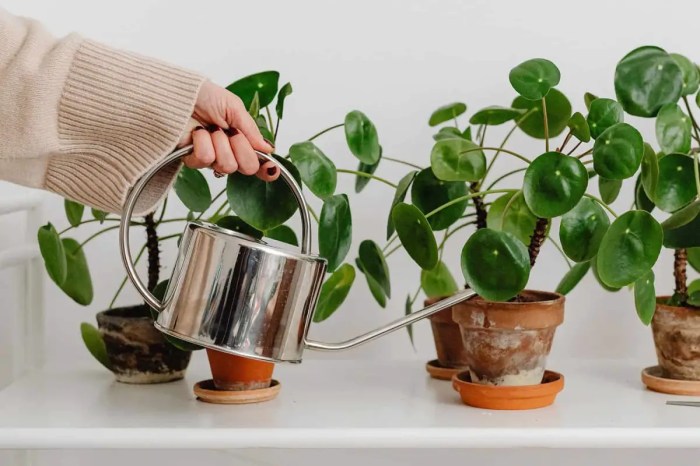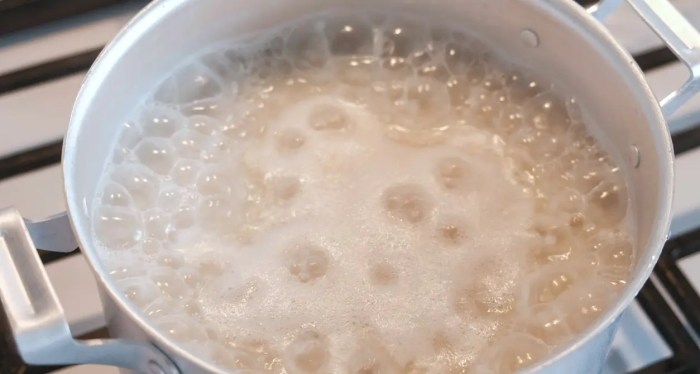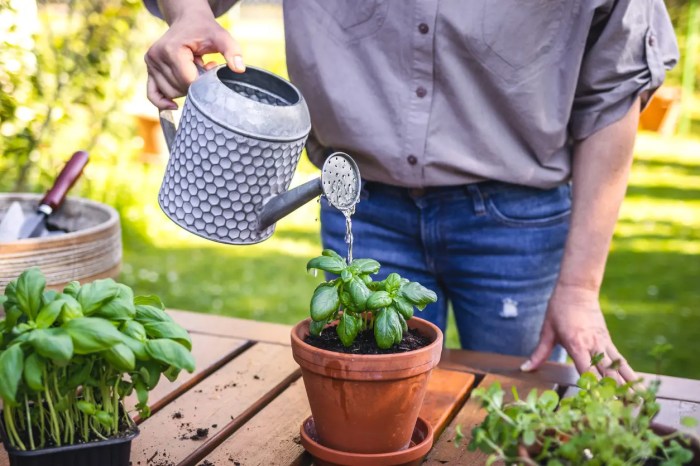Is Rice Water Good for Indoor Plants?
Nutritional Content of Rice Water
Is rice water good for indoor plants – Rice water, the milky liquid left over after rinsing rice, contains various nutrients beneficial to plants. Its composition varies depending on the type of rice used.
Key Nutrients in Rice Water
Rice water is a source of carbohydrates, vitamins (like B vitamins), minerals (including potassium and phosphorus), and amino acids. These nutrients provide essential building blocks for plant growth and overall health. The concentration of these nutrients will differ depending on the rice variety and the rinsing process.
Brown Rice Water vs. White Rice Water
Brown rice water generally contains a higher concentration of nutrients compared to white rice water. This is because the bran and germ layers, which are rich in nutrients, are removed during the processing of white rice. Brown rice water retains more of these beneficial components.
Benefits of Rice Water Nutrients for Indoor Plants
The nutrients in rice water can contribute to improved plant health. For example, potassium promotes strong stems and enhances flowering, while phosphorus is crucial for root development and overall vigor. The carbohydrates can act as a readily available energy source for the plants.
Application Methods for Rice Water on Indoor Plants
Several methods can be used to apply rice water to indoor plants, each with its own advantages and disadvantages. Careful consideration of the plant type and growth stage is crucial for optimal results.
Methods of Applying Rice Water

Source: gardenguider.com
Rice water can be applied directly to the soil as a watering solution or used as a foliar spray, applied directly to the leaves. Fertigation, the application of rice water through a plant’s irrigation system, is also a possibility, though less common for home use.
Comparison of Application Methods
| Method | Frequency | Plant Type Suitability | Potential Benefits/Drawbacks |
|---|---|---|---|
| Soil Watering | Once a week or every other week, depending on plant needs | Most indoor plants | Provides nutrients to roots; potential for overwatering if not diluted correctly. |
| Foliar Spray | Once every 2-4 weeks | Plants with broad leaves | Direct nutrient absorption through leaves; potential for fungal growth if not allowed to dry completely. |
| Fertigation (if applicable) | Depends on system; consult system instructions | Plants in self-watering systems | Consistent nutrient delivery; requires specialized equipment. |
Rice Water Dilution Ratios Infographic
Imagine an infographic with three sections, each representing a different plant type (flowering, foliage, succulent). Each section would show a simple illustration of the plant type and a clear graphic illustrating the dilution ratio (e.g., 1:10 rice water to water for flowering plants, 1:20 for succulents). The infographic would use a visually appealing color scheme and clear, concise labels.
Effects of Rice Water on Different Plant Types
Rice water’s impact varies depending on the plant species. While generally beneficial, its effectiveness can differ significantly between flowering plants, foliage plants, and succulents due to their unique nutrient requirements.
Impact on Various Plant Species
Anecdotal evidence suggests that rice water can promote lush foliage in foliage plants like pothos and spider plants. For flowering plants, it might enhance bloom production, though further research is needed to establish a definitive correlation. Succulents, being more drought-tolerant, might benefit less from frequent applications of rice water.
Rice water’s benefits for indoor plants are well-documented, offering nutrients that promote healthy growth. Similar to exploring whether rice water is beneficial, one might also consider other household solutions, such as investigating if is cucumber water good for plants , as both offer potential natural plant food sources. Ultimately, the effectiveness of rice water depends on factors like plant type and application method.
Examples of Successful Rice Water Applications
A pothos plant watered with diluted rice water once a week showed noticeably improved leaf color and growth rate compared to a control plant. Similarly, a peace lily treated with a foliar spray of rice water exhibited more abundant blooms.
Comparison to Other Fertilizers

Source: greenmatters.com
Rice water can be considered a natural, low-cost alternative to commercial fertilizers. However, it lacks the precise nutrient ratios found in synthetic fertilizers, making it less predictable in its effects. Its effectiveness depends heavily on the type of rice and preparation method.
Potential Drawbacks and Risks of Using Rice Water
While generally safe, improper use of rice water can lead to negative consequences for indoor plants. Understanding these risks and taking preventive measures is essential.
Potential Risks Associated with Rice Water, Is rice water good for indoor plants
Overwatering with undiluted rice water can lead to root rot due to its high carbohydrate content, which can encourage fungal growth. Nutrient imbalances can also occur if rice water is used excessively without other nutrient sources.
Avoiding Risks with Proper Preparation and Application
Always dilute rice water appropriately, typically a ratio of 1:10 or 1:20 (rice water to water). Ensure good drainage in plant pots to prevent waterlogging. Avoid using rice water on plants already exhibiting signs of disease or stress.
Situations Where Rice Water Might Be Detrimental
Plants with very specific nutrient requirements or those already suffering from root rot might not benefit from rice water application. It’s crucial to observe the plant’s response and adjust the application accordingly.
Long-Term Effects and Sustainability
Consistent use of rice water can have positive long-term effects on soil health and plant vitality. Its environmental impact is also significantly lower than synthetic fertilizers.
Long-Term Effects on Soil and Plants
Regular application of diluted rice water can improve soil structure and fertility over time. This can lead to healthier plants with improved resilience to pests and diseases.
Environmental Impact Compared to Synthetic Fertilizers

Source: greenmatters.com
Rice water is a sustainable and eco-friendly alternative to synthetic fertilizers. It reduces reliance on chemical inputs and minimizes environmental pollution.
Tips for Sustainable and Responsible Use
Use only organically grown rice for making rice water. Dilute appropriately and avoid overwatering. Observe your plants closely for any adverse reactions and adjust your application accordingly. Compost leftover rice grains after making rice water to further minimize waste.
FAQ Corner: Is Rice Water Good For Indoor Plants
Can I use leftover rice water from cooking?
Yes, but let it cool completely before applying to prevent shocking the plants.
How long can I store rice water?
Store it in the refrigerator for up to a week to prevent spoilage. The smell will change, indicating it’s time to discard it.
Will rice water attract pests?
While generally safe, improperly diluted or stale rice water can attract pests. Ensure proper dilution and discard any spoiled solution.
Is rice water suitable for all indoor plants?
Most indoor plants benefit, but some sensitive plants might react negatively. Start with a diluted solution and observe your plants’ response.




















